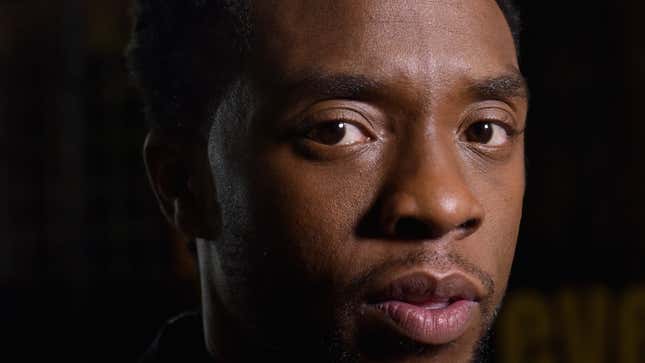
When it was announced that Chadwick Boseman had died after a years-long battle with colon cancer, many fans and peers alike were stunned to learn he’d been suffering from the terminal disease.
In a recent cover story for the Hollywood Reporter honoring the late actor, Boseman’s agent Michael Green opened up a bit about just how seriously Boseman took his career (in terms of the roles he chose) and shared some more insight as to what influenced the actor’s decision to keep his cancer diagnosis private.
In the intimate essay, Green noted it was Boseman’s mother who “always taught him not to have people fuss over him.”
“[Boseman] also felt in this business that people trip out about things, and he was a very, very private person,” Green added.
As we’ve noted before, Boseman had every right to make that choice for himself. In his heartfelt statement, Black Panther director Ryan Coogler revealed that he hadn’t known the details about Boseman’s diagnosis.
“After his family released their statement, I realized that he was living with his illness the entire time I knew him.” Coogler wrote. “Because he was a caretaker, a leader, and a man of faith, dignity and pride, he shielded his collaborators from his suffering. He lived a beautiful life. And he made great art. Day after day, year after year. That was who he was. He was an epic firework display. I will tell stories about being there for some of the brilliant sparks till the end of my days.”
Boseman’s trainer Addison Henderson also provided insight into the man Boseman was, noting he “was just living his artistic life to the fullest and using his time and his moment to really affect people.”
“For us, it was just like, ‘Let’s keep going, let’s keep doing what you want to do, let’s keep training,’” Henderson said. “Chad had so much wisdom, so much knowledge, so much inside of him that he wasn’t going to let this disease stop him from telling these amazing stories and showing his art in the prime of his life.”
On Boseman’s discretion when it came to choosing the roles he did, Green wrote:
After Chad’s first script, they literally said, “Oh, here’s your next script, and your mother’s a crackhead and your father left.” And he goes, “I’m not playing those images,” and he went into the writers room, and they fired him. I remember him and Tessa were offered a movie, it was about two slaves, and he was like, “I do not want to perpetuate slavery.” It was like, “We’re not going to keep perpetuating the stereotypes,” and that’s why he wanted to show men of strength and of character.
It was always about bringing light. That’s why we never did really dark movies or movies that were just people shooting everybody and perpetuating darkness. He accomplished so much, and all while he was fighting the darkness, literally. Until the last couple of days of his life, he was fighting it.
Green even touched on the well-known and embraced fact that Boseman had become known as the Black biopic actor.
He wrote:
The amount of time that we strategized over whether he should do a role for the betterment of humanity—it was always about utilizing his platform. “How can I give back? How will this be valuable to the Black community, and the community at large?” He was always, “What will I be able to tell through this role?” That’s how we chose almost all his roles. Somebody once said, “He’s playing a lot of biopic people.” We said, “It didn’t hurt Leonardo DiCaprio.”

